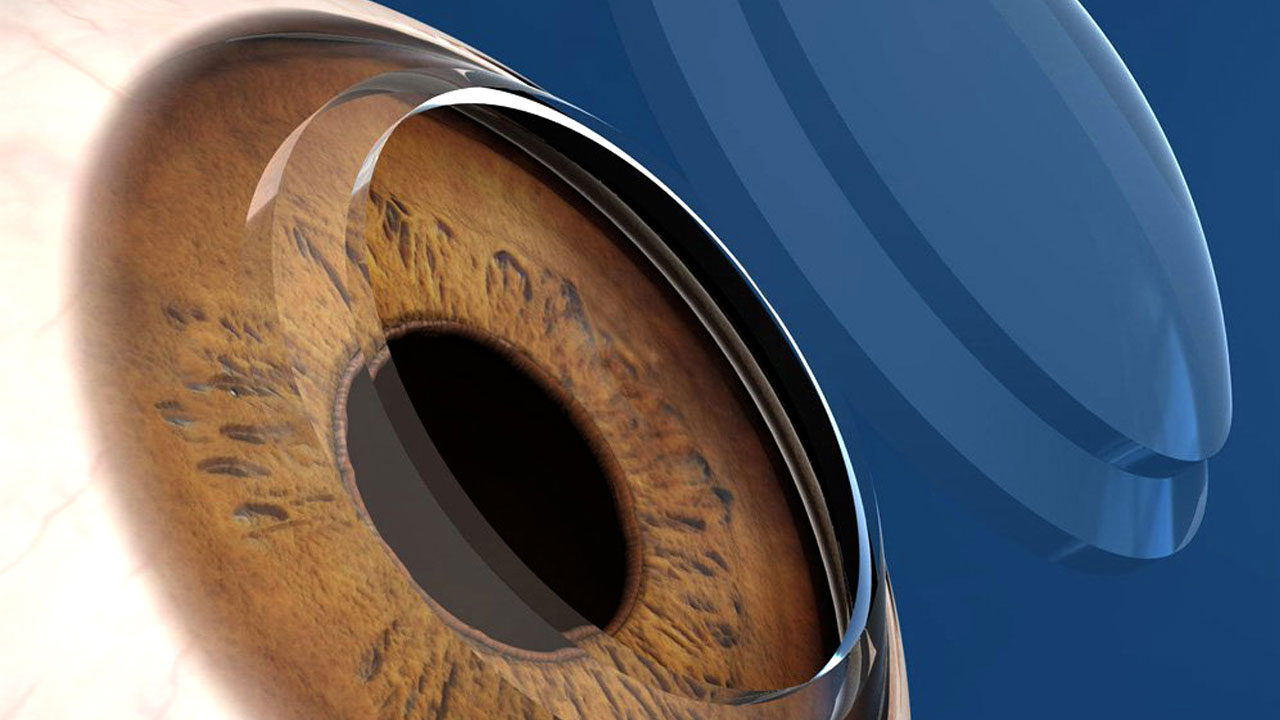- Contact: +91-9270109498 020 24352449
- Email: kuldeepdole@yahoo.co.in

Cornea treatment at Dole Eye Hospital
Dole Eye Hospital in Pune provides advanced treatment options for various eye conditions, including cornea treatment. We offer comprehensive specialized services to restore vision for patients suffering from corneal disorders.
With a patient-centered approach and a commitment to excellence, Dole Eye Hospital is dedicated to delivering personalized and effective treatments to address the unique needs of individuals seeking optimal cornea care.
Common corneal conditions
Some of the most common corneal diseases:
- Keratitis is inflammation of the cornea. Bacteria, viruses, fungi, or parasites can cause it.
- A dry eye is a condition in which the eyes don't produce enough tears to moisten the cornea.
- Corneal dystrophies are a group of inherited disorders that cause the cornea to become cloudy.
- Keratoconus is a condition in which the cornea becomes thinner and bulges outward.
- Fuchs' endothelial dystrophy is when the cells lining the inside of the cornea become damaged.
Signs and Symptoms of Corneal Problems
some of the signs and symptoms of corneal problems:
- Eye pain. This can range from mild to severe and may be accompanied by a feeling of pressure or fullness in the eye.
- Blurred vision. This can be sudden or gradual and may be accompanied by other symptoms, such as light sensitivity or double vision.
- Redness. The whites of the eyes may become red, pink, or bloodshot.
- Watering. The eyes may produce more tears than usual.
- A thick, white, or yellow discharge may come from the eye.
- Sensation of something in the eye.
- Itching. The eyes may itch.
- You may be more sensitive to light than usual.
Diagnosis of Corneal Conditions
An eye doctor diagnoses corneal conditions during a comprehensive eye exam. The exam may include the following tests:
- Slit lamp examination. During the examination, the doctor will utilize a slit lamp, essentially a microscope with a powerful light, to examine the cornea and other parts of the eye.
- Fluorescein dye test. This test is used to look for any breaks or tears in the cornea. The doctor will put a drop of fluorescein dye in the eye and then shine a bright light on the eye. The dye will stain any breaks or tears in the cornea, making them easier to see.
- Corneal topography. This test creates a map of the cornea. This map can be used to measure the cornea's thickness and shape and look for any abnormalities.
- Corneal biopsy. This is done under local anesthesia.
- Vision test. This exam evaluates your eyesight and detects any alterations in your vision. The specific tests that are performed will depend on the suspected corneal condition.
Common Non-Surgical Cornea Treatments
Common non-surgical cornea treatments include contact lenses, corneal cross-linking, punctal plugs, artificial tears, and eye shields. Contact lenses correct vision and protect the cornea.
Corneal cross-linking strengthens the cornea. Punctal plugs reduce tear drainage and alleviate dry eye symptoms. Artificial tears keep the cornea moist. Eye shields protect the eyes from damage. The appropriate treatment depends on your condition.
Surgical Treatment Options for Cornea Conditions
Here are some of the most common surgical treatment options for corneal conditions:
- 1. Corneal transplant:This procedure treats various corneal conditions, including keratoconus, Fuchs' endothelial dystrophy, and corneal scarring.
- 2. Corneal cross-linking:This procedure treats keratoconus and other corneal diseases.
- 3. Intrastromal corneal ring segments (ICRS):This procedure treats keratoconus and other corneal diseases.
- 4. Phototherapeutic keratectomy (PTK):This procedure treats various corneal conditions, including corneal scarring and dystrophy.
- 5. Descemet stripping endothelial keratoplasty (DSEK):This procedure treats Fuchs' endothelial dystrophy.
- 6. Descemet membrane endothelial keratoplasty (DMEK):This procedure often treats Fuchs' endothelial dystrophy in younger patients.
- Wear protective eyewear when participating in sports or activities that could expose your eyes to injury.
- Wash your hands thoroughly before and after touching your eyes.
- Use contact lenses as directed by your eye doctor.
- Get regular eye exams, even if you don't wear glasses or contact lenses.
- Eating a healthy diet. A healthy diet gives your body the nutrients it needs to heal properly.
